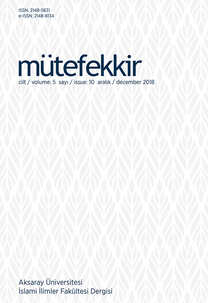الفخر النرجسي في الشعر الجاهلي (دراسة أسلوبية نقدية)
إنَّ علاقة الشعر بالنفس الإنسانية علاقة وطيدة، فالشعر وسيلة للتعبير عمّا يجيش في النفس الإنسانية من انفعالات وأحاسيس وعواطف وسلوكيات، والكلمات فيه مفاتيح أساسية لفهم شخصية قائلها، فالشخصية الحزينة تنشئ ألفاظًا وتعابير حزينة، والشخصية السعيدة تولِّد ألفاظًا وتعابير سعيدة، فالشخصية هي المحرّك الأساسي للكلمات، وهي الينبوع الوافر للأحاسيس والعواطف، والشعراء أبناء بيئاتهم، فكلّما كانت البيئة راقية حَضرية أَخرجَ الشاعرُ كلامًا راقيًّا مُفعمًا بالمشاعر النبيلة المتزنة، وكلّما كانت البيئة مُتدنيّة بدوية أَخرجَ الشاعرُ كلامًا مُتدنيًّا ينمُّ عن مشاعر قبيحةٍ مضطربةٍ، وقد لعبت البيئة الجاهلية -بما تحتويه من مفارقات طبقية- دورًا كبيرًا في بروز النرجسية في أشعار بعض الشعراء، نرجسية يسودها التفاخر بتعاظم (الأنا) وحب الذات وإلغاء دور الآخر في ساحات الصراع الميداني أو الكلامي، مُتجلّية في الإحساس بدنو مرتبة الشرف و النسب أو بروز النشوة بارتفاع الذات الماجنة العاشقة لجسد المرأة ومفاتنها، أو الإحساس بتعالي الذات المغرورة الطامحة إلى التسلّط والطموح. جاء البحث ليعبّر عن الفخر في الشعر الجاهلي ولكن ليس الفخر الذي عرفتْهُ كُتب الأدب و دواوين الشعر، إنّما هو فخر من نوع خاصٍّ امتزج مع الحال النَّفسية للشاعر ليخرجَ لنا فخرًا نرجسيًا يتماشى وذاته الشاعر المتعالية على غيرها بإحساس العظمة والرفعة.
Narcissistic Pride in Pre-Islamic Poetry (Critical Usul/Method Study)
The relationship of poetry with the human soul is a close one, poetry is a means of expressing the emotions, feelings, behaviors that are simmering in the human soul, and words contain essential keys to understanding the personality of the one who says it. The sad personality creates sad words and expressions, and the happy personality generates happy words and expressions, the personality is the main source of the words. It is the abundant fountain of feelings and emotions. Poets are the sons of their environments, so the more sophisticated and cultured their environment is, the more it will produce poets full of noble and balanced feelings. Whenever the environment is Bedouin and low in quality the poets are going to use a lowly speech that expresses ugly and troubling feelings. The pre-Islamic environment - with its class paradoxes - has played a major role in the emergence of narcissism in the poetry of some poets. It is a narcissism that is dominated by boasting about ego and self-love and the elimination of the role of the other, narcissism characterized by a sense of low honor and lineage, or it is characterized by the greatness of lineage, honor, and authority. This study aims to express pride in pre-Islamic poetry; however, it does not mean the pride that was mentioned in literature books and poetry collections, rather it aims to clarify the pride that is of a special kind. The pride that mixes with the psychological state of the poet and emerged to us as narcissistic pride shows the same poet with a sense of grandeur and sublime.
___
- Abdülmelik b. Kureyb el-Asmaî. Fuhûletü’ş-şuʿarâʾ. Beyrut: Dârü’l-Kitâbi’l-Cedîd, 1980.
- Absî, Urve b. el-Verd. ed-Dîvân. thk. Esma Ebû Bekr Muhammed. Beyrut: Dârü’lKütübi’l-İlmiyye, 1992.
- A’şâ, Meymûn b. Kays. ed-Dîvân. Beyrut: Dârü’l-Kalem, 1993.
- Bağdâdî, Abdülkadir b. Ömer. Hizânetü’l-edeb ve lübbü lübâbi lisani’l-Arab, thk. Abdüsselam Muhammed Hârun. Kahire: Mektebetü’l-Hâncî, 1997.
- Bakkâr, Yusuf. İtticâhât fi’l-gazeli fi’l-karni’s-sânî’l-hicrî. Beyrut: Dârü’l-Endelüs, 1986.
- Bedevi, Abde. eş-Şu’arâu’s-sûd ve hasâisuhum fi’ş-ş’iri’l-arabî. Kahire: el-Hey’etü’lMısriyyetü’l-’Âmme li’l-Kitâb, 1988.
- Cüde, Âmel. “en-Nercisiyye ve ʿalâkatuhâ bi’l-asabiyye ledâ ʿayyine min talebeti câmiati el-aksâ”. Gazze: Mecelletu Câmi’ati’l-İslâmiyyeti li’d-Dirâsâti’t-Terbeviyyeti ve’n-Nefsiyye, 2/20, 2012.
- David Matsumoto, The Cambridge Dictionary of psychology (New york, Cambridge university press, 2009.
- Ensârî, Hassân b. Sâbit. ed-Dîvân. Beyrut: Dârü’l-Kütübi’l-İlmiyye, 1994. Halîf, Yusuf. Dirâsât fi’ş-ş’iri’l-Cahîlî. Kahire: Dâru Garîb, 1981.
- İbn Kuteybe, Abdullāh b. Müslim. eş-Şi’r ve’ş-şu’arâ. thk. Ahmet Muhammed Şakir. Kahire: Dârü’l-Ma’ârif, 1982.
- İbn Reşîk, Ebû Alî el-Hasen b. Reşîk el-Ezdî el-Mesîlî el-Kayrevânî. el-ʿUmde fî meḥâsini’ş-şiʿr ve âdâbih. thk. Muhammed Muhyiddîn Abdulhamid. Beyrut: Dârü’l-Cîl, 1981.
- İbnü’l-Esîr, Necmeddîn Ahmed b. İsmâîl el-Halebî. Cevherü’l-kenz. thk. Muhammed Seyîd Osman. Beyrut: Dârü’l-Kütübi’l-İlmiyye, 2012.
- İmruülkays b. Hucr. ed-Dîvân. thk. Muhammad Ebü’l-Fazl İbrahim. Kahire: Dârü’lMa’ârif, 1984.
- İsa, Hasan Ahmed. el-İbdâ’u fi’l-fenni ve’l-İlm. Kuveyt: el-Meclisü’l-Vatanî li’l-Lugât ve’l-Funûn ve’l-Âdâb, 1979.
- İsfahanî, Ali b. Hüseyin b. Muhammed Ebü’l-Ferec. Kitabu’l-eğânî. Kahire: Dârü’lKütübi’l-Mısriyye, 1369/1950.
- Mekkî, et-Tahir Ahmed. İmruü’l-kays hayâtuhû ve şi’ruhû. Kahire: Dârü’l-Ma’ârif, 1995.
- Mühelhil, Adî b. Rebîa. ed-Dîvân. Kahire: ed-Dârü’l-ʿÂlemiyye, ts.
- Nebevî, Abdulaziz. Dîvân Benî Bakır. Kahire: Dârü’z-Zehra, 1989.
- Nebevî, Abdulaziz. el-Mer’etu fî şi’ri’l-A’şâ. Kahire: Dârü’s-Sadr, 1987.
- Robert Michael Bagby, And others, Dsm-Iv personality disorders and the five-factor model of personality: Amulti-method examination of domain and facet-level predictions. USA: Eurpean Journal of Personality, 19/4, 2005.
- Rûmiyye, Vehb. Kasîdetü’l-medh hattâ nihâyeti’l-asri’l-Emevî beyne’l-usûl ve’l-ihyâi ve’t-tecdîd. Dımaşk: Vizaretü’s-Sekâfe, 1981.
- Sakûr, Mâlik. Beyne’n-nercisiyye ve’l-gurûr ve veremi’l-ene. Dımaşk: Mecelletü’lMevkifi’l-Edebî, 2015.
- Sigmund Freud, Mâ fevka mebdei’l-lezze, çev. İshak Ramzi, Kahire: Dârü’l-Maarif, 1966.
- Summe, Düreyd. ed-Dîvân. thk. Ömer Abdurresûl. Kahire: Dârü’l-Ma’ârif, 1980.
- Suyûfî, ʿİsâm. el-Mer’et fi’t-turâsi’l-arabî fi’l-edebi’l-câhilî. Beyrut: Dârü’l-Fikr, 1991.
- Şenferâ, Sâbit b. Mâlik. ed-Dîvân. Beyrut: Dârül-Kitabi’l-Arabî, 1996.
- Tağlibî, Amr b. Külsûm. ed-Dîvân. Beyrut: Dârül-Kitabi’l-Arabî, 1991.
- Tufeyl, Âmir. ed-Dîvân. Beyrut: Dâru Sadır, 1979.
- Tuleymât, Gâzî vd. el-Edebü’l-câhilî (Kadâyâ-ağrâda-A’lâme-funûne). Beyrut: Dârü’lFikr, ts.
- Tuncî, Muhammed. el-Mu’cemü’l-mufassal fi’l-edeb. Beyrut: Dârü’l-Kütübi’l-İlmiyye, 1992.
- Zeydü’l-Hayl, Zeyd b. el-Mühelhil. ed-Dîvân. Bağdat: Dâru’n-Nu’man, 1968.
- Zübeydî, Amr b. Ma’dikerib. ed-Dîvân. Riyad: Matbaatü’l-Abîkân, 1994.
- ISSN: 2148-5631
- Yayın Aralığı: Yılda 2 Sayı
- Başlangıç: 2014
- Yayıncı: Aksaray Üniversitesi İslami İlimler Fakültesi
Sayıdaki Diğer Makaleler
Câhiliye Şiirinde Narsisist Gurur (Eleştirel Usul Çalışması)
Kur’ân’ın Nüzûl Sürecinde Rab Kavramının Semantik Alanı
İkbal’in Şiirlerinde Hindistan Bağlamında Batılı Güç İngiltere Eleştirisi
MUHSIN RAMAZAN İŞSEVER, Mehmet Kemal ÇAKMAKÇI
Kur’an’ın Yakut ve Mercan Benzetmesinde Kadın
Mehmet Akif Ersoy’un Eserlerinde “İttihâd-ı İslâm” Düşüncesi
